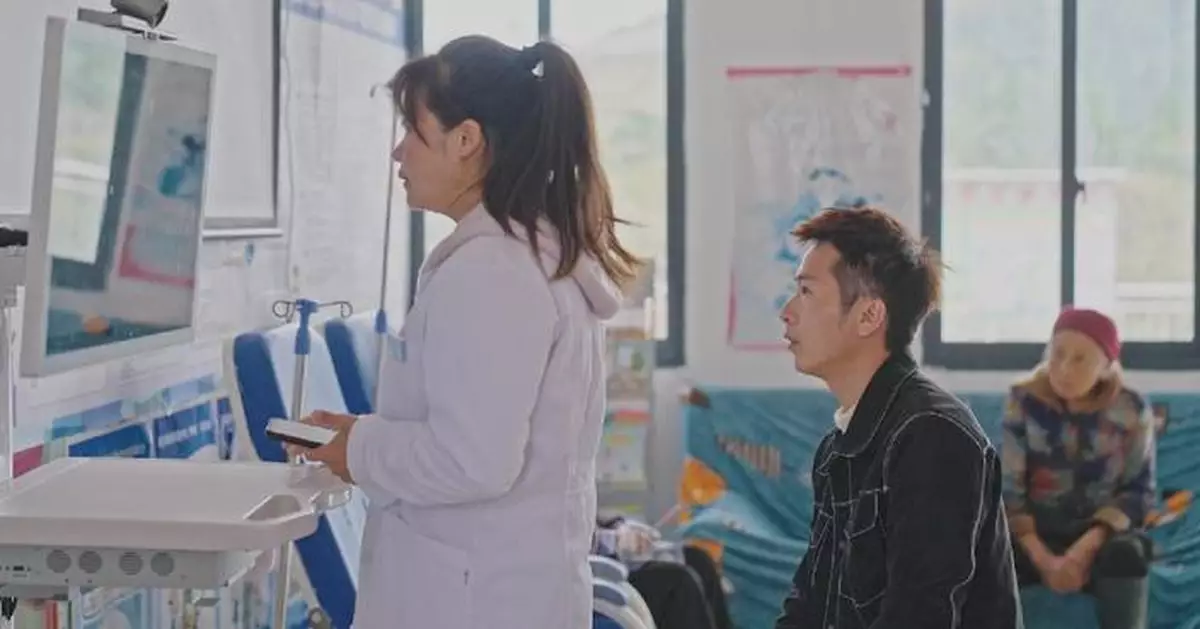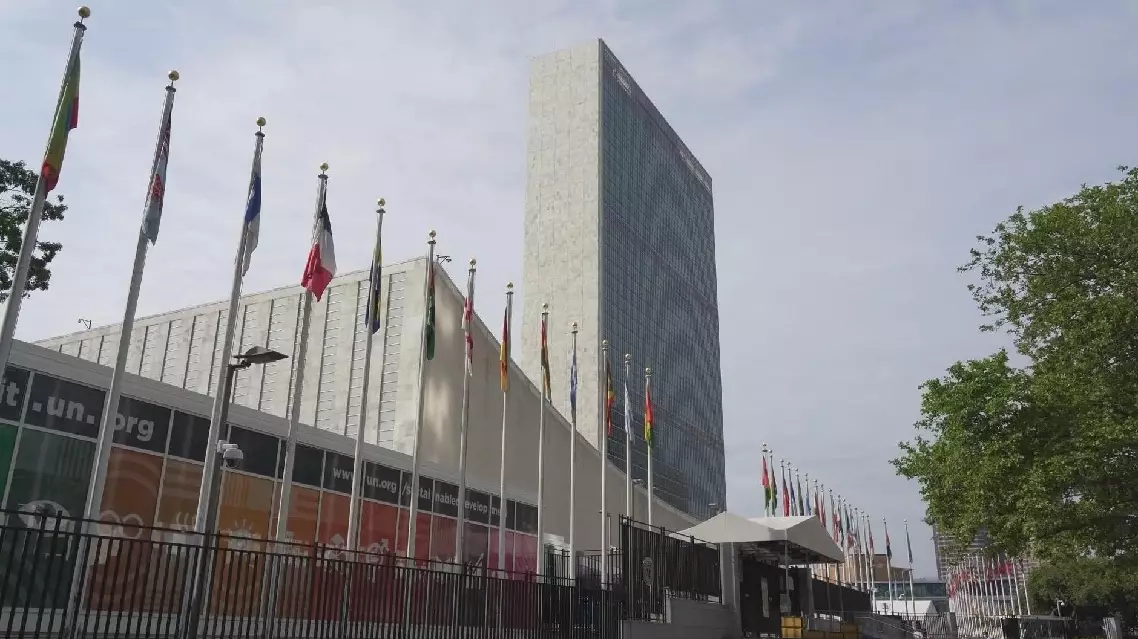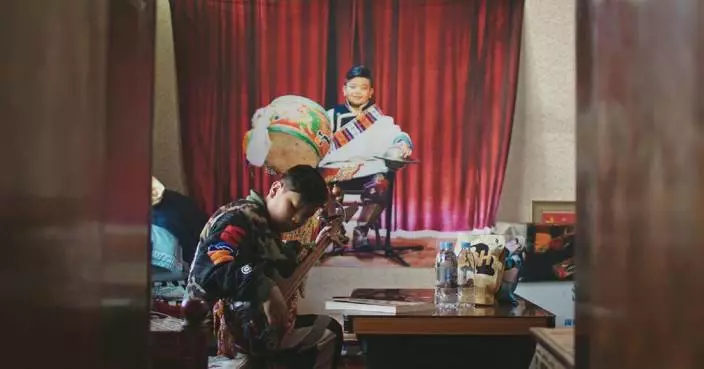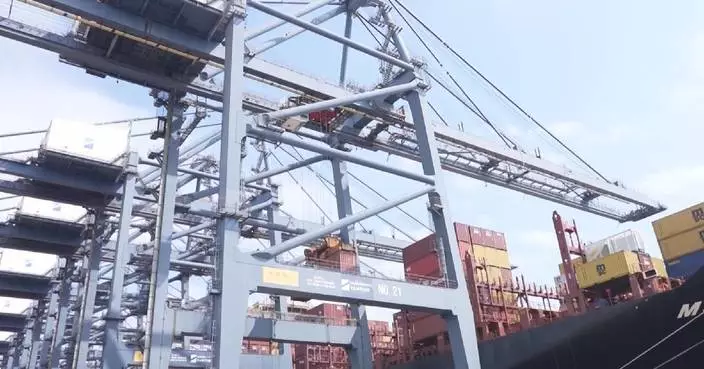Smart medical solutions have helped bring down barriers to healthcare accessibility in China's remote villages, where people are now enjoying 24/7 medical services thanks to 5G-enabled health clinics that connect remote villages with major hospitals in cities in real time.
Li Jiahui, the sole doctor at the Zhongpai village clinic in southwestern China's Guizhou Province, is responsible for the healthcare of over 100 patients who suffer from chronic illnesses. Previously, home visits were a challenge for her due to poor transportation infrastructure.
"As transport has improved greatly nowadays, we go to the village to check up on them, take their blood pressure and see if they're taking their medicine every quarter, There used to be no cars, no [public] transport. You had to go on foot," Li said.
The rural population, in particular, faces considerable barriers to accessing high-quality healthcare services. Many young adults have migrated to cities for work, leaving behind the elderly and children in the villages. For these groups, receiving specialized care often means traveling long distances to urban centers, which can be both time-consuming and financially burdensome.
The young people are working away from home. Those still at home are the elderly and children.
"In the past, I never went to hospital. I had no money, no car. When I fell sick, I stayed home for recovery," said an elderly woman from the village.
"For the elderly who have difficulty in mobility, it's a long way to the nearest town. They're also short of money, so they don't want to go," Li said.
Rural clinics, often understaffed and ill-equipped, are struggling to meet the healthcare needs of vulnerable communities. Li often felt helpless when she visited patients in critical conditions.
"Sometimes when I go to the village, I meet patients who are seriously ill. I feel I can't help them. There's nothing I can do. I feel very ashamed," said the village doctor.
While major cities in China boast start-of-the-art medical facilities, people living in rural areas are facing significant disparities in healthcare provision.
"China has world class unit hospitals in some places. But it's got less developed health provision in rural areas, even semi-rural areas. It's still a country that has very patchy provision, healthcare is a great example," said Professor Kerry Brown, director of Lau China Institute at King's College London.
However, the introduction of 5G technology has brought new hope to rural residents.
"Now because of the 5G technology, people in a far distance, poor areas can through the internet get even medical treatment," said Professor Wang Yiwei, director of Institute of International Affairs at Renmin University of China. Now Li's village clinic has adopted an AI-driven consultation platform. The system allows doctors to input patient information, which is then used to generate diagnostic reports. When she encounters a difficult case or is unable to diagnose a condition, she can directly consult with county hospitals via this platform. This digital transformation has created a more integrated and collaborative medical ecosystem, enabling rural healthcare providers to offer more comprehensive care.
Li said the system not only makes it easier for patients to access healthcare, but also reduces their financial burden.
So far in Longli County, the "digital cultural medical service system" has been expanded to cover 83 village clinics and three county hospitals, benefiting more than 100,000 people. Zhang Yansheng, chief research fellow with the China Center for International Economic Exchanges, highlighted the significance of rural healthcare to a more equitable society. "Health services for rural areas and the poor, and elderly care services are key to achieving common prosperity," he said.
While bridging the urban-rural divide remains a challenge, technological advancements like 5G add to the possibility of digital equality in the healthcare sector.
"I think in terms of wealth, rich and poor, that's a harder thing. But to bring everyone up to the same level digitally, it may not be all that challenging," said journalist and author Rebecca Fannin.
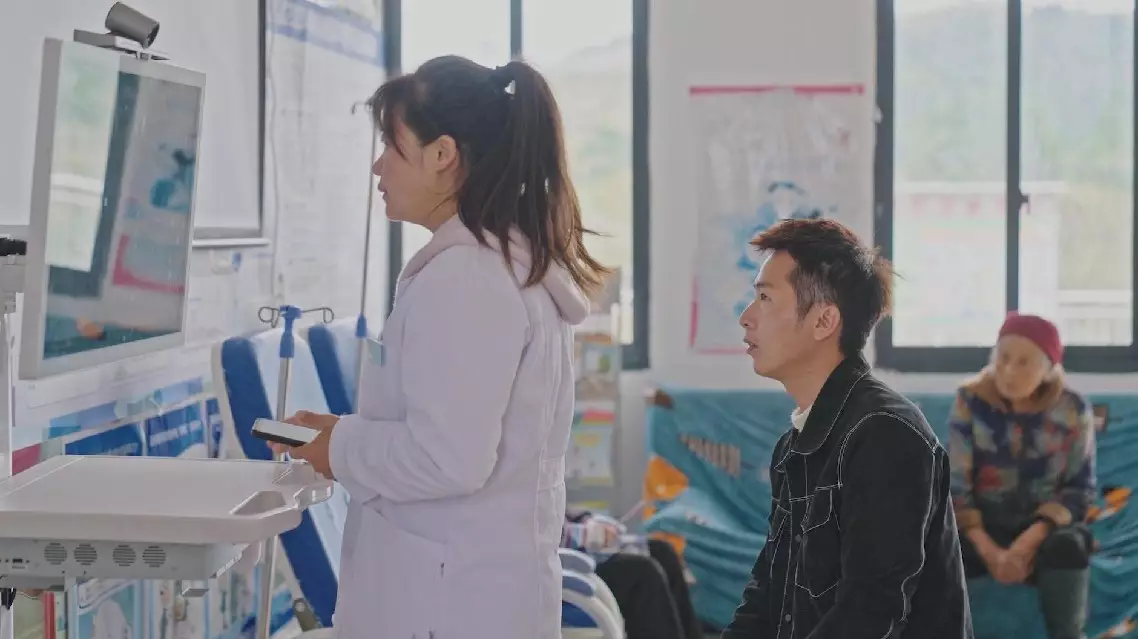
5G cloud clinics bridge last mile in rural healthcare


